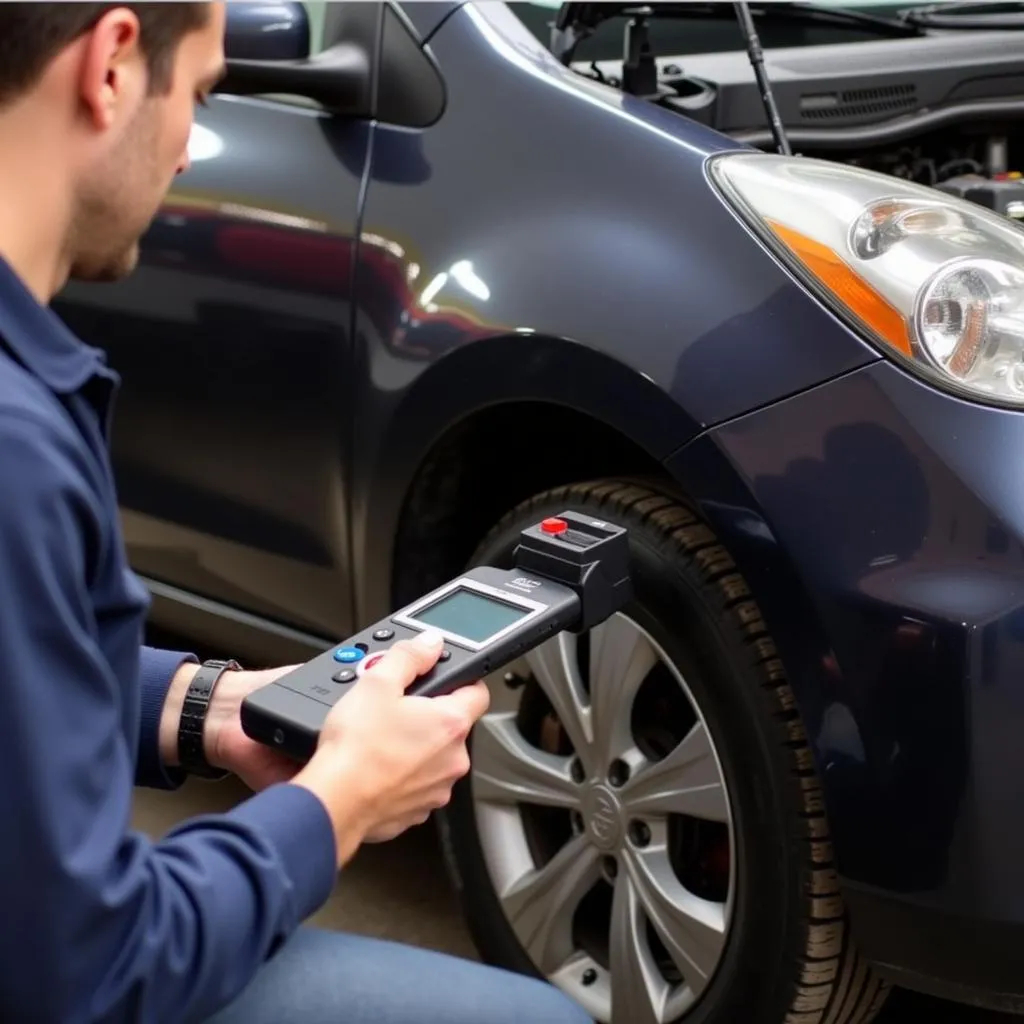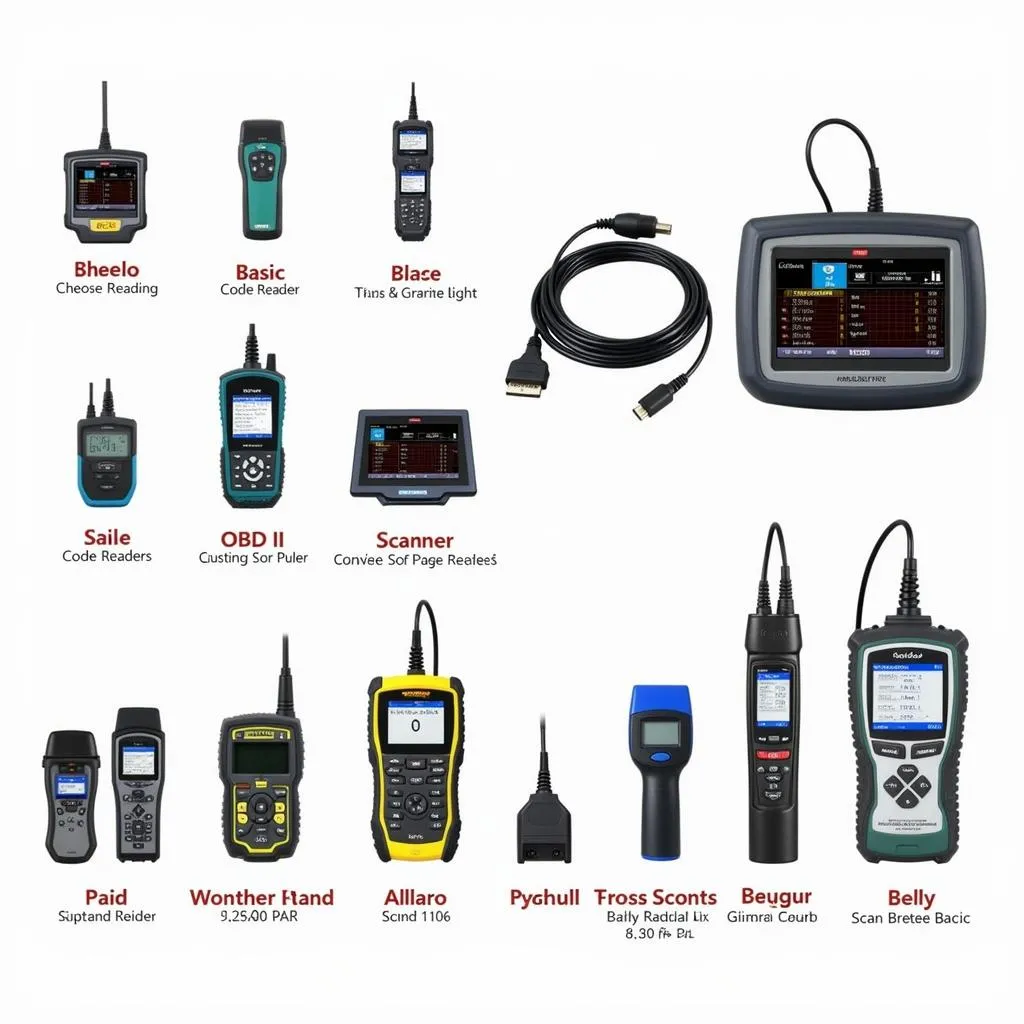Finding a good scan tool can feel like searching for a needle in a haystack. With countless options available, each boasting different features and price points, it’s easy to feel overwhelmed. Whether you’re a seasoned mechanic or a car enthusiast looking to DIY, having the right scan tool can be a game-changer. This guide is designed to help you navigate the world of automotive diagnostic tools and empower you to make an informed decision.
Why Invest in a Good Scan Tool?
Before we delve into the specifics, let’s address the elephant in the room: why is a good scan tool so important?
Imagine this: Your check engine light pops on. Do you:
- A) Ignore it and hope for the best?
- B) Rush to a mechanic and potentially face a hefty bill?
- C) Use your trusty scan tool to diagnose the issue and potentially fix it yourself?
A good scan tool empowers you to take control of your vehicle’s health. It acts as your personal mechanic, providing insights into your car’s inner workings. This translates to:
- Early problem detection: Identify minor issues before they snowball into major repairs.
- Cost savings: Avoid unnecessary trips to the mechanic for simple diagnostics.
- Increased knowledge: Gain a deeper understanding of how your car functions.
- Improved resale value: Maintaining a well-documented service history can significantly boost your car’s value.
 Mechanic using a scan tool on a car
Mechanic using a scan tool on a car
Types of Scan Tools: Which One’s Right for You?
Not all scan tools are created equal. They come in various shapes and sizes, each catering to different needs and budgets. Let’s break down the most common types:
1. Code Readers:
- What they do: As the name suggests, code readers retrieve and display diagnostic trouble codes (DTCs) stored in your vehicle’s computer.
- Pros: Affordable and easy to use, even for beginners.
- Cons: Limited functionality – they typically only read and clear codes, without providing in-depth diagnostic information.
2. OBD-II Scanners:
- What they do: These tools offer a step up from basic code readers, providing access to more data beyond just DTCs. They can display live data streams, sensor readings, and in some cases, even graph data for easier analysis.
- Pros: More versatile than code readers, offering a good balance between features and affordability.
- Cons: Functionality can vary greatly between models. Some may not support all car makes and models.
3. Professional-Grade Scan Tools:
- What they do: These are the heavy hitters of the diagnostic world, used by professional mechanics and serious DIYers alike. They offer a comprehensive suite of features, including bi-directional control (the ability to command actuators), advanced coding and programming capabilities, and access to manufacturer-specific data.
- Pros: Unmatched diagnostic power and versatility, allowing you to perform complex repairs and maintenance tasks.
- Cons: Can be significantly more expensive than other types of scan tools.
 Different types of automotive scan tools
Different types of automotive scan tools
Essential Features to Look for in a Good Scan Tool
When choosing a scan tool, certain features can make your life much easier. Here’s what to keep an eye out for:
- Vehicle Coverage: Ensure the scan tool is compatible with your car’s make, model, and year. Some tools specialize in specific manufacturers, while others offer broader coverage.
- User Interface: A user-friendly interface with a clear display and intuitive navigation is crucial, especially if you’re new to automotive diagnostics.
- Data Logging: The ability to record and save data logs can be invaluable for tracking intermittent issues or monitoring sensor readings over time.
- Live Data Streaming: Accessing live data streams from various sensors allows you to observe your engine’s performance in real-time.
- Update Options: Regular software updates are essential for maintaining compatibility with the latest vehicle models and ensuring optimal performance.
Good Scan Tool Options for Different Budgets
Now, let’s talk about the good stuff – actual scan tool recommendations. We’ve curated a list of good scan tool options across different price points:
Budget-Friendly:
- What’s a good scan tool that can do tests? Find out more about affordable scan tools that don’t compromise on functionality.
- Good cheap car scan tool Discover highly-rated and budget-friendly options for basic diagnostics.
Mid-Range:
- Good automotive scan tool Explore versatile scan tools offering a good balance between features and price.
High-End:
- Good scan tool for BMW For BMW owners seeking specialized diagnostic capabilities.
- What is a good OBD scan tool for Toyota Avalon? Find the perfect scan tool tailored for your Toyota Avalon.
Remember, the best scan tool for you ultimately depends on your individual needs, budget, and level of automotive expertise.
Investing in Your Automotive Peace of Mind
A good scan tool is more than just a gadget; it’s an investment in your peace of mind. It empowers you to take charge of your vehicle’s health, potentially saving you time, money, and unnecessary headaches. By understanding the different types of scan tools available and the key features to prioritize, you can confidently choose the right one for your needs. Remember, a little knowledge and the right tools can go a long way in ensuring a smooth and enjoyable driving experience.


